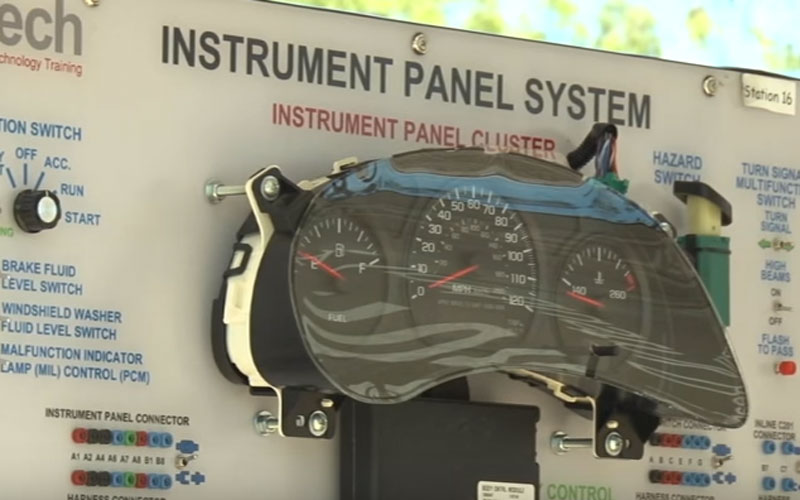
Advocates for career technical education claimed a victory after Gov. Doug Ducey earlier this month signed a bill to restore about $30 million in funding cuts to Joint Technical Education Districts.
(Photo by Ziyi Zeng/Cronkite News)
Of all job openings in Arizona, more than half of them have fallen into a “middle-skills” category since 2010, according to data from the National Skills Coalition.
That means the jobs often require less than a bachelor’s degree, but more than a high school diploma.
“What we currently have here is an imbalance. We do not have enough people today to pursue career technical education to satisfy the needs within the marketplace,” said Mike Romano, campus president of Scottsdale-based Universal Technical Institute.
Romano advocates for career technical education, which he said could help diminish that gap.
“Stereotypes of skilled trades and restrictions on private technical education are pushing students and their families away from worthwhile training and careers,” he said in a news release. “As a result, we have more people working in low-income jobs, fewer thriving middle-class families, a widening income gap and, increasingly, a shortage of skilled trades people needed to keep the economy moving forward.”
Advocates for career technical education claimed a victory after Gov. Doug Ducey earlier this month signed a bill to restore about $30 million in funding cuts to Joint Technical Education Districts. The funding had been cut last year during the budget process.
“I’m glad he saw the light and decided to save these programs,” Arizona Senate minority leader Katie Hobbs said.
Arizona’s 14 Joint Technical Education Districts partner with neighboring schools and districts to give career and technical education courses to students under the age of 22. The students attend public high school in the morning or are homeschooled and attend their JTED courses in the afternoon.
The classes can include learnings skills like cosmetology, caregiving, culinary arts and EMT.
Katherine Leong, a high school student who has taken technical education classes in engineering, said her school district struggles to fund those classes because they see them as an “extra.”
“It’s incredibly valuable to students,” she said. “I wouldn’t be where I am today without my CTE classes.”
Scott Bergstrom, a manager at an auto dealership in Phoenix, said he sees the need for this kind of training.
“We need technicians,” he said. “If I had four of them apply today, I’d hire them on the spot.”
In transportation service, the industry will need to fill about 37,000 service technician jobs every year between 2012 and 2024, according to a news release from the Universal Technical Institute, which cited U.S. Bureau of Labor Statistics data.
Cronkite News reporter James Anderson contributed to this article.